FAWE Kenya, in partnership with
Mastercard Foundation Launches Situational Analysis Report on Teenage Pregnancies in Kenya.
The Forum for African Women Educationalists (FAWE) has launched a landmark situational analysis report on teenage pregnancy in Kenya, providing critical insights into the prevalence, causes and socio-economic impact of the problem. The report, entitled ‘Situational Analysis on Teen Pregnancies in Kenya’, examines teenage pregnancy rates in 20 counties and provides a comprehensive look at the challenges faced by young girls. The event in Nairobi, attended by policy makers, educators, journalists and community leaders, underlined FAWE’s commitment to tackling this crisis.
The report shows that teenage pregnancy among girls aged 15 to 18 in the counties surveyed is 27.4%. Counties with the highest rates include Narok (43.3%), Kajiado (35.6%) and Turkana (34.2%), while Nyeri (6%), Nyandarua (8%) and Muranga (9.2%) have the lowest prevalence. The findings illustrate the wide regional disparities and highlight areas where targeted interventions are urgently needed to protect vulnerable girls.
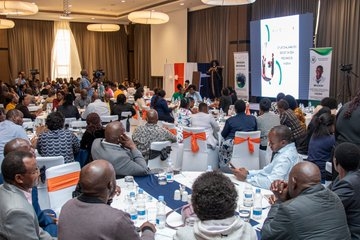
In addition to pregnancy rates, the report looks at child marriage, another prevalent issue in Kenya. Garissa leads the way with a 43% incidence of child marriage, followed by Turkana with 38% and Nairobi with 22%. Although the report shows a slight decrease in child marriage rates – from 23% in 2014 to 18.6% in 2024 for girls aged 15-18 – early marriage continues to hinder educational and economic opportunities for young girls, with only 3% of boys reportedly married before the age of 18.
To address these issues, FAWE recommends a multi-faceted approach that includes parental education, family life counselling and mental health programmes in schools. The report also calls for increased law enforcement and financial support for at-risk students, as well as school-based programmes that empower girls to speak out. A key initiative is FAWE’s Tuseme Clubs, launched as part of the Imarisha Msichana programme, which provide safe spaces for girls to discuss challenges.
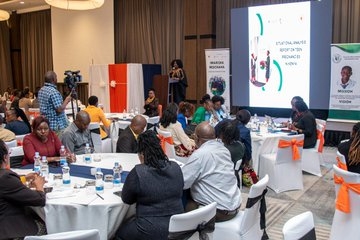
Ms Teresa Omondi-Adeitan, FAWE Africa’s Deputy Executive Director, highlighted the importance of the findings. “This situational analysis report on teenage pregnancy in Kenya reaffirms our commitment to understanding and addressing this pressing issue,” she said. “Tackling teenage pregnancy isn’t just about reducing statistics – it’s about changing lives and uplifting communities.”
Hannah Tsadik, Acting Country Director at the Mastercard Foundation, a core partner in FAWE’s initiatives, highlighted the economic impact of early marriage and teenage motherhood. “Early marriage and motherhood are economic challenges,” she noted. “This report reaffirms our mission to create inclusive economies that provide dignified opportunities for young women and men. Addressing these challenges opens up broader prospects for families and communities.”
Also:
Read:https://kenyadailypulsenews.wordpress.com/2024/10/30/celebrating-50-years-of-world-vision-kenya-a-partnership-for-child-protection-and-community-transformation/
The event included a dialogue session where stakeholders discussed the report’s findings and explored cross-sectoral strategies to address teenage pregnancy. This collaborative approach aims to mobilise communities and resources to support FAWE’s vision of reducing teenage pregnancy and empowering young girls across Kenya.
In a celebratory moment, FAWE awarded the Best Gender-Responsive Reporters, recognising journalists for excellence in gender-sensitive reporting. Through the Imarisha Msichana Programme, FAWE has trained 250 journalists to improve their coverage of gender issues. The awards included Best Feature Story, Best Investigative Story and Best Gender Reporting.
FAWE Kenya CEO Jeanette Nyanjom praised the winners, saying: “Quality gender-responsive journalism is essential to raise awareness and inspire change. The journalists honoured today have set a high standard in promoting gender equality and girls’ rights across Kenya.
Through this report and its partnerships, FAWE, together with the Mastercard Foundation, is committed to creating a safer and brighter future for young Kenyan girls, equipping them with the tools to thrive and contribute meaningfully to their communities.

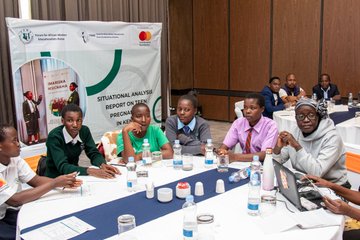



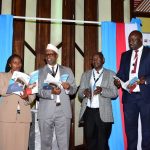

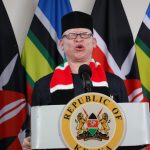



[…] Read:https://kenyadailypulsenews.wordpress.com/2024/10/31/fawe-launches-landmark-report-on-teenage-pregna… […]
[…] Read:https://kenyadailypulsenews.wordpress.com/2024/10/31/fawe-launches-landmark-report-on-teenage-pregna… […]